When it comes to our feline friends and their dietary habits, it’s not uncommon for cat owners to have questions about what is safe and what is not. A common inquiry that often arises is whether cats can consume turkey bacon. Although it is widely known that cats may eagerly pounce on a stray piece of bacon, it is crucial to comprehend the potential health consequences before incorporating it into their diet. This article seeks to offer in-depth analysis on whether turkey bacon is an appropriate indulgence for your feline companion.
Can Cats Eat Turkey Bacon?
Cats can safely eat turkey bacon in moderation. However, it shouldn’t be a significant part of their diet. Although turkey is protein-rich, turkey bacon can be high in sodium, preservatives, and unhealthy saturated fats for cats. Overindulging your feline friend with copious amounts of turkey bacon can result in long-term health issues such as obesity, pancreatitis, and heart problems.
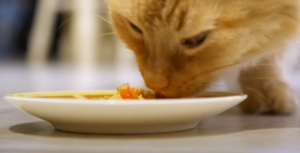
Raw/Uncooked Turkey Bacon
It is not advisable to feed your cat raw or uncooked turkey bacon. Raw meat poses a high risk of bacterial contamination, such as Salmonella or E. coli, which can cause severe health issues in cats. These may include vomiting, diarrhea, and in severe cases, organ failure. Uncooked bacon, including turkey bacon, has high levels of fat and sodium that can harm cats. Excess fat can cause obesity and other health issues, while high sodium content can lead to salt poisoning, resulting in symptoms like increased thirst, urination, and neurological problems. So, it’s best to avoid feeding your cat raw turkey bacon. [1]
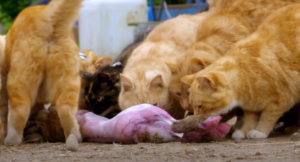
Cooked Turkey Bacon
Cooked turkey bacon is a safer cat treat compared to raw turkey bacon. The process of cooking can kill off harmful bacteria, making it less likely to cause foodborne illness. Nevertheless, it is crucial to restrict the intake of cooked turkey bacon to a minimum. Despite being cooked, turkey bacon is high in sodium and fat, which can lead to health complications like obesity, heart disease, and in some cases, pancreatitis. Additionally, certain cats may struggle with digesting cooked turkey bacon, which can cause gastrointestinal discomfort or distress. In conclusion, while occasional cooked turkey bacon may not harm your cat, it shouldn’t be a regular part of their diet.
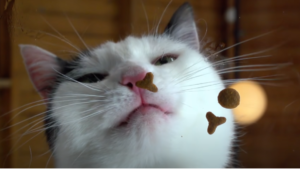
Can Kittens Eat Turkey Bacon?
Like adult cats, kittens should not have turkey bacon as part of their regular diet. Kittens have delicate digestive systems and need a nutrient-rich diet for optimal growth and development.
Therefore, it’s crucial to feed kittens a balanced and nutrient-dense diet designed specifically for them, and avoid treats like turkey bacon. [2]
Why Can’t Cats Eat Turkey Bacon In Large Amounts?
Avoid giving cats large amounts of turkey bacon due to its high sodium, fat, and preservative content. Consuming too much sodium can lead to salt poisoning in cats, which can cause symptoms like increased thirst, urination, and in severe cases, neurological problems. Moreover, the high fat in turkey bacon may contribute to obesity and health problems like pancreatitis and heart disease. Preservatives often used in turkey bacon can also be harmful to cats, potentially causing allergic reactions or indigestion. Regularly eating turkey bacon can result in an imbalanced diet, lacking essential nutrients that cats require for their overall health and wellbeing. While turkey bacon can be an occasional treat, it shouldn’t be a regular part of your cat’s diet.
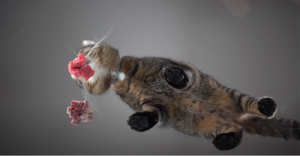
When Should I Give My Cat Turkey Bacon?
Feeding your cat turkey bacon should be limited to occasional treats rather than a regular part of their daily diet. It can be used as a high-value reward during training sessions or offered as a special treat during festive occasions. However, it is crucial to ensure that the portion size is small, and the turkey bacon is thoroughly cooked to eliminate any potential bacteria. Besides, it would be best if you also considered your cat’s overall health and dietary needs. For example, cats with conditions like obesity, heart disease, or pancreatitis should steer clear of high-fat and high-sodium foods, including turkey bacon. Before incorporating any new foods into your pet’s diet, it is always advisable to seek guidance from your veterinarian. [3]
How Much Turkey Bacon Can A Cat Have?
The amount of turkey bacon a cat can have depends on its size, health, and dietary needs. However, a general rule of thumb is to limit it to a very small amount. A small piece, no larger than the size of your cat’s paw, once in a while should suffice. It’s critical to remember that turkey bacon should merely be a rare treat and not a routine part of your cat’s diet. If your cat has any health conditions, such as obesity or heart disease, it may be best to avoid turkey bacon altogether. It’s always important to seek guidance from your veterinarian to gain a comprehensive understanding of what constitutes a safe and nourishing diet for your feline companion.
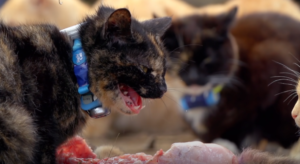
What To Do If Your Cat Ate A Large Amount Of Turkey Bacon?
If your cat has ingested a substantial quantity of turkey bacon, it is crucial to closely observe them for any potential negative effects.
Keep A Close Eye On
If your cat has consumed a significant quantity of turkey bacon. Monitor for signs of discomfort or distress, such as vomiting, diarrhea, increased thirst, excessive urination, or lethargy. These symptoms may indicate salt poisoning or other health issues caused by excessive sodium and fat intake. If your cat displays any of these symptoms or seems unwell, it’s essential to contact your veterinarian immediately. Even if your cat appears fine initially, complications may develop over time, so it’s crucial to maintain a watchful eye over your pet’s behavior and health following such an incident. [4]
Give Him Canned Pumpkin
Canned pumpkin can serve as a beneficial dietary supplement for your cat, particularly after it has indulged in a substantial portion of turkey bacon. This food is abundant in fiber, which promotes healthy digestion and may alleviate gastrointestinal issues like diarrhea or constipation. Pumpkin is also low in fat and calories, making it a healthier treat option. Ensure to use only unsweetened canned pumpkin, not pumpkin pie filling, which may contain harmful sugars and spices for cats. You can offer your cat a small portion of canned pumpkin, approximately a teaspoon, mixed with their regular food. Please note that although canned pumpkin may offer temporary relief, it is not a substitute for seeking professional veterinary care if your cat has ingested a significant amount of turkey bacon and is displaying signs of discomfort or illness.
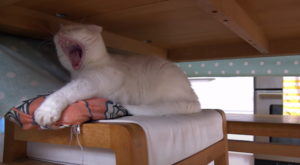
Visit The Vet
If your cat eats a lot of turkey bacon and shows signs of distress or illness like vomiting, diarrhea, excessive thirst, increased urination, or lethargy, take them to the vet right away. These signs could indicate salt poisoning or other health issues caused by high sodium and fat levels. Your vet can conduct the necessary tests, provide treatment, and guide you on the next steps. Remember, it’s always safer to seek professional help when in doubt about your pet’s health. Keeping your vet updated on your cat’s diet, including any new foods like turkey bacon, is crucial. They can provide you with the best advice tailored to your pet’s specific nutritional needs and overall health. [5]
FAQ
Is turkey meat OK for cats?
Yes, turkey meat is generally safe for cats to consume. Protein is an essential element in a cat’s diet, making it an excellent source to meet their nutritional needs. It’s important to cook turkey thoroughly to avoid harmful bacteria like Salmonella, which can cause food poisoning. Furthermore, cats should consume solely unseasoned turkey. Flavored or seasoned turkey, especially those with garlic or onions, can be toxic to cats. Additionally, turkey should be consumed moderately as part of a balanced diet. Consult your vet before introducing new foods to your cat’s diet.
Can cats eat turkey heart?
Certainly, cats can consume turkey hearts. It is rich in taurine, an essential amino acid that your cat requires for good heart health, vision, and reproduction. Additionally, turkey heart serves as an excellent protein source, essential for a cat’s dietary needs. Nevertheless, it is crucial to ensure thorough cooking to eliminate any potential bacteria. Furthermore, it is advisable to consume it moderately as part of a well-balanced diet. Consuming excessively can result in obesity and various health complications. It is always advisable to seek guidance from your veterinarian before introducing any new food items to your cat’s diet. In general, although turkey bacon can be a delightful indulgence for your feline friend, it is crucial to restrict its intake and ensure it is cooked completely. Ensure that your cat’s health always takes precedence, and make sure to consult your veterinarian before introducing any new foods into their diet. By taking appropriate precautions and practicing moderation, you can treat your beloved furry friend to the occasional indulgence of turkey bacon while ensuring their safety. When you’re enjoying a turkey bacon sandwich, it’s best to save a separate portion for your feline friend.
Can cats eat turkey or ham?
Cats can eat turkey and ham, but there are important considerations. Turkey, as mentioned before, should be plain, thoroughly cooked, and given in moderation. Ham isn’t toxic to cats, but it’s high salt and fat content can cause health problems like obesity and heart disease if eaten often or in large quantities. Moreover, ham can also cause upset stomachs in cats due to its richness. If you give your cat ham, only provide a small amount occasionally, not as a regular part of their diet. Always consult your vet before introducing new foods to your cat’s diet. Consider your cat’s health, diet, and existing medical conditions. When in doubt, consult a professional for expert advice. Ensuring the welfare of your beloved pet should always take precedence.
What happens if my cat eats bacon?
If your cat eats bacon, it can encounter various symptoms, ranging from mild to severe, due to the high levels of fat and salt present in bacon. In the immediate term, your cat can display indications of gastrointestinal distress, such as vomiting or diarrhea. Over time, regular consumption of bacon can lead to obesity, pancreatitis, and potentially heart conditions as a result of its high fat content. Consuming excessive salt can result in sodium ion poisoning, which manifests in symptoms such as heightened thirst and urination, tremors, elevated body temperature, seizures, and in severe cases, even fatality if left untreated. As a general guideline, it is advisable to refrain from feeding bacon to your cat. Always check with your vet before making major changes to your cat’s diet. It is crucial to closely monitor your pet if they have ingested bacon or any other food that could potentially lead to discomfort or illness. When uncertain, it is advisable to seek professional assistance promptly. Prevention is better than cure for your furry friend’s health and well-being.
Is bacon fat OK for cats?
Avoid feeding bacon fat to cats. While not immediately toxic, this substance is rich in calories and sodium, which can contribute to obesity and health issues such as heart disease and sodium ion poisoning with prolonged consumption. Additionally, regular or large consumption of bacon fat could potentially contribute to pancreatitis, a painful and serious condition caused by an inflamed pancreas. While your cat may be enticed by the aroma and flavor of bacon fat, it’s best to avoid including this indulgence in their diet. Before introducing new foods into your cat’s diet, it is always advisable to consult with your veterinarian. Always prioritize your pet’s health and well-being by erring on the side of caution. So, if you’re ever unsure about a particular food or ingredient, don’t hesitate to ask your vet for guidance. Their purpose is to aid and deliver top-notch care for your beloved furry companion.
Are cats allergic to turkey meat?
While it’s relatively rare, cats can indeed develop allergies to certain types of meat, including turkey. Food allergies can manifest in various ways, with symptoms ranging from skin irritations to gastrointestinal problems like vomiting and diarrhea. In rare cases, respiratory distress may also occur. If your cat exhibits any signs of allergic reactions, such as excessive itching, redness, swelling, or discomfort after consuming turkey, it is advisable to promptly seek veterinary consultation. They can conduct allergy tests to confirm whether turkey is the culprit. If your cat is allergic to turkey, you’ll need to adjust their diet accordingly and avoid feeding them turkey in the future. However, remember, every cat is unique and what affects one may not necessarily affect another. Always work closely with your vet to determine the best dietary plan for your feline friend.
What meats should cats not eat?
Cats should avoid consuming certain meats due to potential health risks. First and foremost, raw meat or undercooked meat can carry harmful bacteria and parasites, such as Salmonella or Toxoplasma, which may cause foodborne illnesses. Processed meats, like sausages, hot dogs, and salamis, tend to be high in salt and preservatives, making them unsuitable for cats. Seasoned meats or meats cooked with onion, garlic, or certain spices can also be harmful to cats, as these ingredients can be toxic to them. Fish is generally safe for cats to eat, but it should be cooked thoroughly and deboned, and high-mercury fish like tuna should only be given in moderation. It is always advisable to seek guidance from your veterinarian prior to introducing new types of meat into your feline companion’s diet.
Can I feed my cat turkey slices?
Yes, you can feed your cat turkey slices. Turkey is a good source of protein, which cats require for healthy growth and body function. Nonetheless, there are a couple of considerations that warrant your attention. The turkey slices should be plain, without any added seasonings, sauces, or spices, which can be harmful to cats. The turkey slices should also be thoroughly cooked to kill any bacteria and should be cut into small, manageable pieces to prevent choking. Additionally, it is important to provide turkey slices in moderation, as part of a well-balanced diet. Excessive consumption of turkey can contribute to obesity and various health issues. It is always advisable to seek guidance from your veterinarian before introducing any new dietary options to your beloved feline companion. They can advise you on the appropriate portion size and frequency for your cat’s specific needs. Overall, turkey slices can be a tasty and nutritious treat for your feline friend in moderation. So go ahead, indulge your cat with some delicious turkey slices! Just remember to do so responsibly.
Can cats have cheese?
While it is technically possible for cats to consume cheese, it is generally not advised to include it as a regular component of their diet. Cheese is high in fat and contains lactose, which some cats may have difficulty digesting, leading to stomach upset. Kittens usually handle lactose better than adult cats, but both can experience gastrointestinal discomfort if they consume too much. Cheese should be enjoyed as an indulgent treat, reserved for special occasions and consumed in moderation. Some cheeses are less harmful than others – for example, cottage cheese is lower in fat and lactose than other varieties – but all cheese should be given in moderation. Always introduce new foods to your cat’s diet gradually and under the supervision of your vet. If your cat exhibits signs of discomfort or illness after consuming cheese, such as diarrhea, vomiting, or loss of appetite, contact your vet immediately.
Can cats eat rice?
Yes, cats can eat rice in moderation. It is a non-toxic food for cats and is often used as a filler in commercial cat foods. Rice can be beneficial for cats suffering from gastrointestinal issues since it’s easy to digest and can help solidify stool. Nevertheless, it should not make up a substantial portion of their dietary intake. Cats are classified as obligate carnivores, which means that their dietary needs primarily consist of meat. Rice does not have the essential nutrients that cats need from their diet such as taurine, arachidonic acid, vitamin A and various B vitamins, which are all found in meat. If your cat likes rice and has no negative reactions, you can safely give it as a treat occasionally. Always ensure the rice is well-cooked and served plain, without any seasoning or sauces that could be harmful to cats. As a general rule, when incorporating new foods into your cat’s diet, it is recommended to begin with small portions and closely monitor for any potential negative reactions. It is always advisable to seek guidance from your veterinarian should you have any inquiries or apprehensions.
Useful Video: Can Cats Eat Turkey? (2019)
Conclusion
In conclusion, while cats can eat some human foods like turkey, cheese, and rice, it’s important to prioritize their specific dietary needs. Cats are carnivores and need a meat-based diet to meet their nutritional needs. Any human foods should be given thoughtfully and in moderation, always ensuring the absence of harmful seasonings or ingredients. Excessive intake of certain foods, such as bacon, can cause significant health problems in cats. Even seemingly harmless foods like turkey can trigger allergies in some cats. Always consult your vet before adding new foods to your cat’s diet. Remember, each cat is unique, and their dietary needs and reactions to foods may vary. By staying diligent and well-informed about your cat’s dietary requirements, you can play a crucial role in ensuring their overall well-being and contentment.
References:
- https://www.petmd.com/cat/nutrition/can-cats-eat-turkey
- https://petkeen.com/can-cats-eat-turkey-bacon/
- https://www.catster.com/cat-food/can-cats-eat-bacon-get-the-facts
- https://catschef.com/can-cats-eat-turkey-bacon/
- https://littlehappypaw.com/can-cats-eat-turkey-bacon/

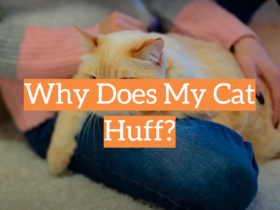
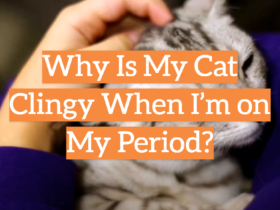
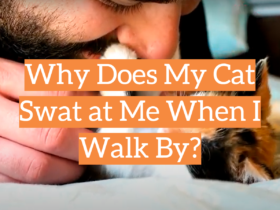
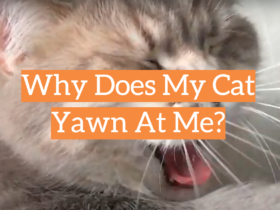
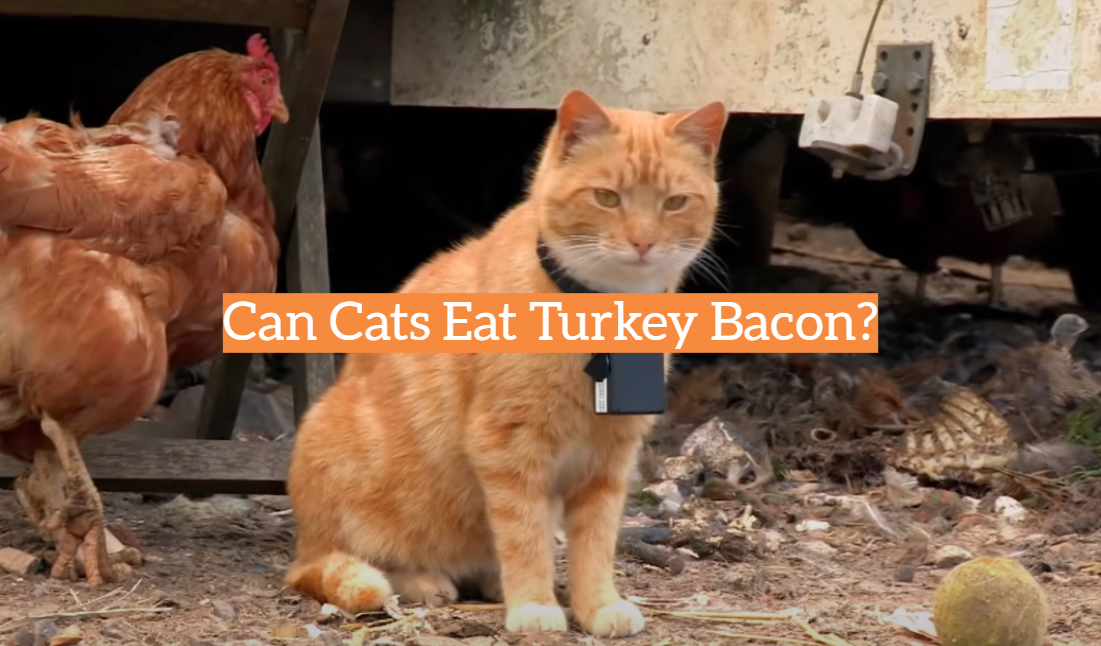
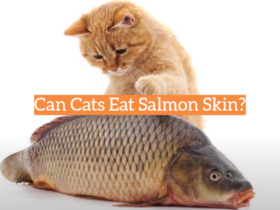
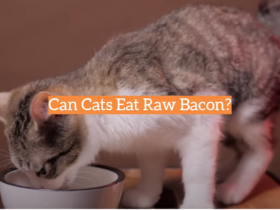
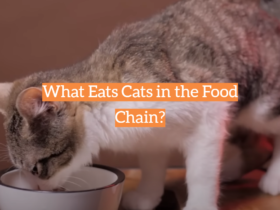
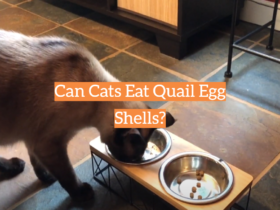
Leave a Reply